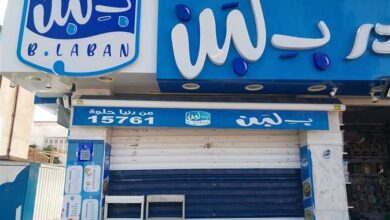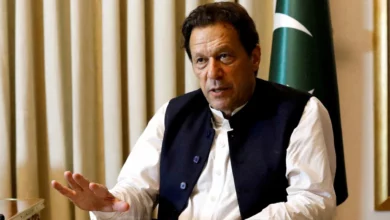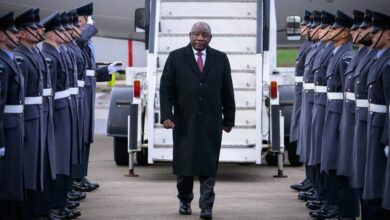Serving another blow to an already battered economy, news emerged last week that the assets of more than 20 businessmen would be frozen in a case of alleged stock market manipulation in the sale of Al-Watany Bank of Egypt.
The implicated figures, prominent Egyptian and Saudi businessmen with expansive investments locally and globally, responded by threatening to freeze their direct investments in Egypt — a move the ailing economy can scarcely afford.
Amid accusations of targeting prominent businessmen by manipulating legal issues, and speculation over the timing of pursuing such cases, the details of alleged corruption charges and whether they are viable easily get lost in the muddle.
Last year, authorities accused Alaa and Gamal Mubarak, the former president’s sons, and seven businessmen of insider trading on the 2007 sale of Al-Watany Bank to the National Bank of Kuwait. Prosecutors said the businessmen made illegal profits worth more than LE2.5 billion.
In mid-March, the stock market submitted a list of names — reports vary on their number, from 21 to 23 — to key financial institutions after Prosecutor General Talaat Abdallah banned them from travel and ordered their funds frozen for alleged stock market manipulation. The move spurred fear in the local market as shares of companies and banks associated with the target businessmen fell.
It also comes on the heels of a tax dispute between Orascom Construction Industries and authorities accusing the company of tax evasion, a claim OCI officials staunchly deny. They’ve said the Egyptian Tax Authority is “attempting to create a context for a tax liability when an incidence does not exist and/or is not applicable.”
As the country struggles to attract investors, and has repeatedly called on Egyptian businessmen to return to the country, as well as offering promises of reconciliation over some of the most high-profile corruption cases, the recent moves seem questionable at best. At worst, they have been described as intentionally detrimental.
Experts say the developments inflict more harm on the investment climate, and may prompt investors to gradually liquidate their assets.
Prime targets?
As swiftly as the prosecutor general ordered the asset freeze, a criminal court made an about-face, reversing the decision less than 48 hours later. Those implicated, however, remain under investigation, and with the news already being widely reported, the damage done to investors’ perception was not as easily reversed.
Experts warned against the implications of the government’s ongoing approach toward Egyptian and Arab businessmen, saying this could drive away the few investors left in the country’s fluctuating stock market.
Those charged along with Hosni Mubarak’s sons last year include Hassan Mohamed Hassanein Heikal and Yasser El Mallawany, CEOs of regional investment bank EFG Hermes.
The new group implicated this month reportedly includes Ayman Fathi Hussein Suleiman, chairman of Al-Watany Bank of Egypt; Alaa Mubarak’s wife Heidi Rasekh and former Information Minister Anas al-Fiqqi.
Among the Egyptians were ex-senior Al-Watany Bank official Issa Eleish, currently serving as chairman at listed company Maridive and Oil Services.
Sources have also cited Saudi businessmen Abdel Rahman Hassan and Hassan Abdel Rahman al-Sharbatly, chairperson and board member of Golden Pyramids Plaza, a listed property company that owns Citystars shopping mall. Hesham al-Sewedy, a prominent Saudi-Egyptian businessman, and Suleiman Abu Nami, the biggest investor in the Egyptian stock market over the past 20 years, were also mentioned, as was Saudi investor Soliman Abanmy, who holds a 15 percent stake in Cairo-based Citadel Capital, an EGX 30-listed private equity firm that has been ranked the largest in Africa.
“If the asset freeze had been implemented … the Egyptian economy would have been looking at immense losses. The Sharbatly family alone has about US$10 billion worth of investments in the country. They have been investing in Egypt since the 1960s, [and] it would have been a disaster for businessmen of such magnitude to have their assets frozen,” says Magdy Abdel Fattah, a banking expert.
He describes the prosecutor general’s decision as hasty, with unstudied consequences that serve as a starkly negative indicator for investors looking to inject money into the Egyptian market.
“Such decisions seem to be taken to drive away foreign investors,” says Abdel Fattah.
With hundreds of thousands entering the job market annually, and the government continuing to struggle to invest money domestically due to an ever-widening budget deficit, the economy has long relied on foreign investment to create jobs and spur economic growth.
Foreign investment also creates a tax revenue stream, bringing in much-needed hard currency that the government uses to import vital commodities and expand trade volumes.
It is hard to believe the current government does not realize this dynamic. It may be that in a bid to seemingly clamp down on corruption and pursue former regime figures and their affiliates, the effects of such legal maneuverings and repeals are not thought through.
“There is a general consensus in the business arena that the government is targeting businessmen associated with the former regime. This stock market manipulation [case] … just like the OCI case, comes as an act of retaliation against business figures who don’t belong to the current ruling Islamist faction,” says Ahmed Hassan Qoura, a banking expert and former Al-Watany Bank chairman.
Many have labeled the tax evasion allegations against OCI as a political machination to target the Sawiris family, which has more or less moved the core of its business interests abroad. While the Finance Ministry has said it reached a deal with OCI to pay only LE7.1 billion of the alleged LE14 billion it owes, the company has denied this and warned authorities against speaking on its behalf.
“The whole case can only be described as ‘bullying’ by the tax authority and Finance Ministry, which have been harassing the company to force public opinion to take a stand against OCI and the Sawiris family as ‘tax evaders,’” says Osama Mourad, market analyst and chairperson of Arab Finance Brokerage.
While transparency should be upheld, experts say the entire case should have been dealt with more discretely. Throughout the process, the alleged sum OCI owes the tax authority was repeatedly leaked and denied, greatly impacting the stock value on the exchange.
Mourad says the case is not in the best interest of any party.
“Everybody stands to lose here. If the tax authority pressures the company into paying, it only means that businessmen are not in safe hands when investing in Egypt — they can be tracked down at any time just because they don’t agree with the current regime.
“If the company wins, this can open the door for other companies to evade taxes and manipulate the system,” Mourad says.
Still, OCI insists it owes authorities nothing, since the laws at the time exempted the transaction from taxes.
To reconcile or not
The unfolding cases contradict the government’s seeming efforts to resolve legal disputes with businessmen. But these very reconciliation efforts are criticized for utilizing unclear standards and vague criteria.
“It only reflects the poor and conflicting management of the current government at a time when it is trying to attract new investments to finance massive national projects, such as the Suez Canal development project,” says Qoura.
When he took up the post, news reports had quoted Central Bank Governor Hesham Ramez as urging President Mohamed Morsy to resolve disputes with Egyptian and foreign investors and activate arbitration efforts regarding financial disputes.
“Reconciliation is a way of protecting the state’s rights … [while] ensuring that businessmen, whether Egyptian or foreign, and their assets are secure in Egypt,” says Abdel Fattah.
Mourad adds that the government’s many conflicting decisions scare away investors eyeing the market.
Egypt is at a critical financial juncture, in desperate need of capital inflows and looking to attract at least $10 billion in new investments.
The main question surrounding the Al-Watany Bank case as well as the alleged OCI tax dispute is the timing of resurrecting the accusations.
“Some people benefited from insider information and manipulated the stock market and made profits from the sale of Al-Watany Bank in 2007. But why did they wait all these years to open the case and bring up these names?” says Mourad.
“Many parties are involved in this case, but I don’t think the defendants will get any real jail sentences. There is no conclusive evidence,” he says, adding that business leader are getting caught in the middle of officials taking revenge against the former regime.
Qoura says the country’s ongoing financial problems must be addressed.
“These businessmen have had hefty investments in the market for many years now and maintaining their investments under the current difficult economic circumstances is considered a national duty,” Qoura says.




